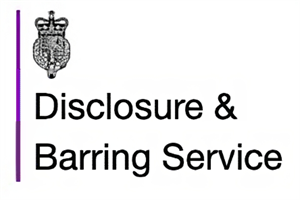Becoming a governor
School governors are volunteers who help schools achieve the highest possible standards of educational achievement.
They come from all walks of life and bring a range of skills and perspectives to the role. If you care about education and are willing to commit some time to working with a school, you could consider becoming a governor. It is a rewarding role that can make a real difference to the lives of children and young people.
Watch ‘Understanding motivation’ and hear local governors and school leaders explain why people want to become school governors.
Can anyone be a governor?
Most people over the age of 18 can be governors. You don’t need to be an education expert. You don’t need to be a parent. You don’t need to have a senior role at work. You just need to care about education and want to make a positive contribution to the community.
Types of governor
There are various different kinds of governors and different kinds of schools have different types of governors:
Parent governors
Parents of children at the school who are elected by the parents of other school pupils. This applies to anyone with parental responsibility, such as foster parents, grandparents and guardians. If there are not enough parents to fill the available posts, the governing body can appoint other candidates who may not be parents. People with parental responsibility can also be any of the other kinds of governor.
Staff governors
Any member of school staff, teachers and support staff can stand for election by the rest of the staff paid to work at the school.
Co-opted governor
The governing body can appoint people to represent local community interests, like someone from a local mosque, church or temple or to bring particular skills and knowledge, such as people working in finance or IT.
Local authority governors
People nominated by Tower Hamlets council who usually bring specific related skills and experience to the board, such as local councillors, teachers at other schools or social workers.
Foundation governors
Foundation schools have governors appointed by the founding body, such as a religious institution or an educational charity, which is named in the school's instrument of government.
Partnership governor
Faith schools such as church or Islamic schools that were not founded by a particular institution may have governors appointed to represent that religious perspective.
Sponsor governors
Governing bodies can also appoint people who have made significant contributions to the school, a former teacher for example.
Associate members
Governing bodies can also appoint associate members who attend meetings where their particular skills or experience will be useful, for example someone with legal qualifications. These people do not have the same powers or responsibilities as governors.
Academy trustees
Academies do not have the same legal responsibilities around governance. They have trustees, not governors. Different trusts have different rules about who and how they appoint.
More information on types of governors and Academy governance can be found on the GOV.UK website.

Who cannot be a governor?
 School governors have serious legal and financial responsibilities. They play an important role in keeping children safe from harm. It's important that they have integrity and high ethical standards. This means there are some people who cannot become governors.
School governors have serious legal and financial responsibilities. They play an important role in keeping children safe from harm. It's important that they have integrity and high ethical standards. This means there are some people who cannot become governors.
People who have had certain criminal convictions, who are disqualified from working with children, who have become bankrupt or who have been disqualified from being a charity trustee are all barred from becoming a school governor.
All prospective governors must be checked by the Disclosure and Barring Service (DBS) to check they are not disqualified in any way. If anyone refuses to make an application to DBS, they are automatically disqualified.
Tower Hamlets Governors Services can advise on specific situations. You can also read the official legal guidance.
Other restrictions
In some cases, it is okay for people to become a school governor, but they cannot take on certain roles.
- People under 18 and pupils registered at the school cannot be governors.
- No-one can hold more than one governor post at the same school at the same time.
- People cannot be a parent governor if they are a local councillor, or if they are paid to work at the school for more than 500 hours in a year.
- School staff cannot be local authority governors.
- People cannot be partnership governors if they are a parent of a pupil, a member of staff, a local councillor or work for the local authority in an education related role.
Failure to attend meetings
Governors who fail to attend governing body meetings for six months without the consent of the governing body are disqualified from being a governor at that school for one year. This does not apply to the headteacher or to foundation governors.
Apply to be a governor
Apply to be a governor at a school of your choice
Start the application
Contact us
Speak to Tower Hamlets Governor Services in confidence for advice on disqualifications.
Call 020 7364 3141 or email governor.servicessection@towerhamlets.gov.uk,